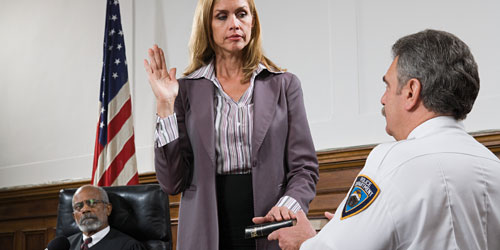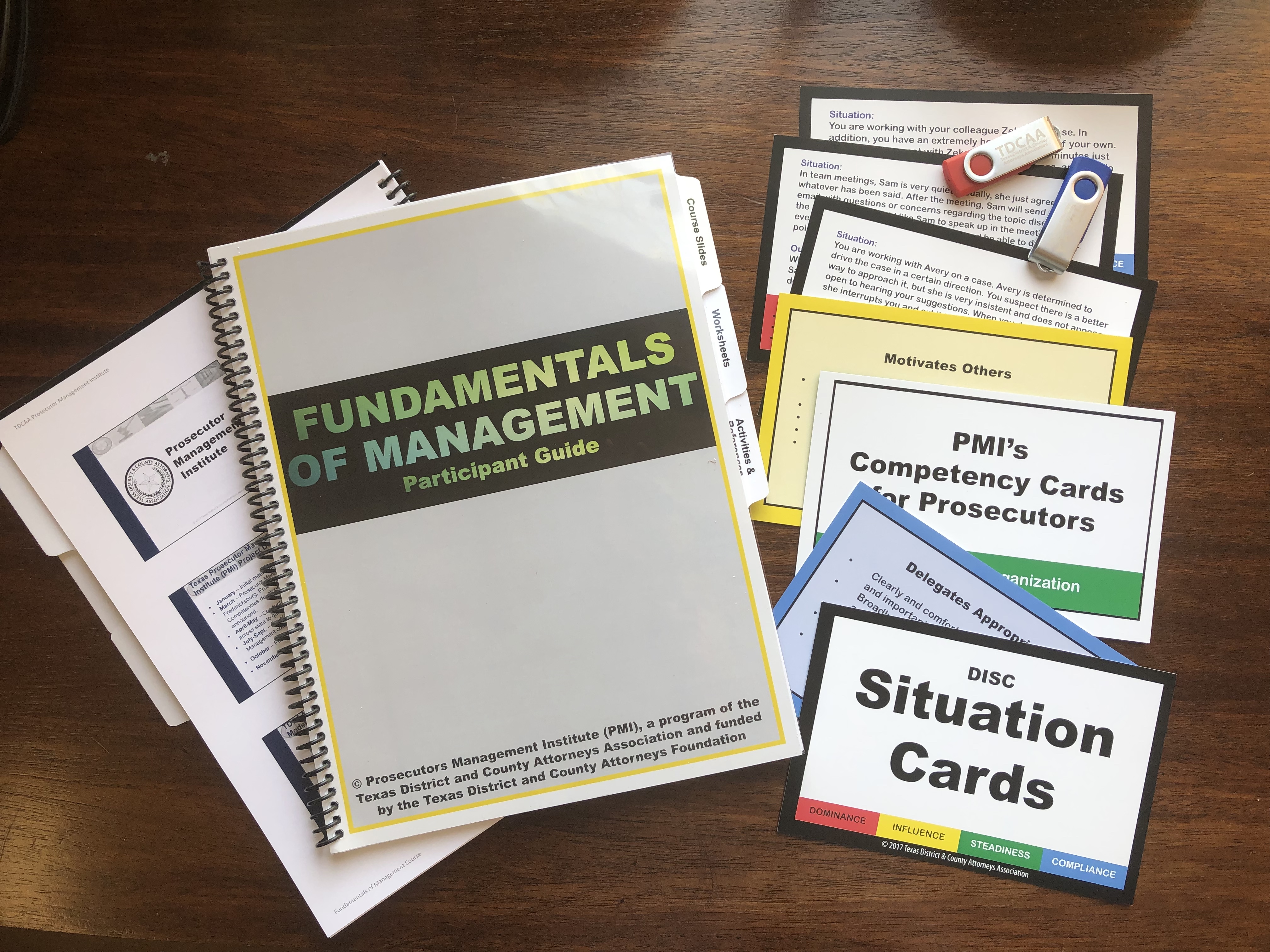Black smoke? White smoke? At the capitol, it’s all about blowing smoke and using smoke and mirrors to get your bills passed. Desperate legislators may be asking the new American Pope to pray for their bills struggling to hold on to their last breaths of life this coming week. Prepare for Leo XIV to be administering last rites over thousands of House bills that do not make it out of the House by Thursday. Requiescat in pace, House bills. It’s still the Easter season, so there’s always 2027 to look forward to!
New Calendars and Committee hearings alert! See below.
Governor focuses on bail reform
Governor Abbott is laser-focused on passing bail reform after securing a school choice/voucher legislative victory. Abbott is no stranger to fighting for bail reform as he has made it an emergency item for the last three legislative sessions. House Democrats normally stall out the effort as they do not join the two-thirds vote needed from the House to pass a constitutional amendment. There are currently 88 House Republicans, which means that 12 House Democrats are needed to pass out the constitutional amendments.
The Senate passed four different bills as part of the bail reform package back in February. SJR1 creates a constitutional amendment requiring the denial of bail for an illegal alien charged with a felony. SJR 5 creates a constitutional amendment allowing the denial of bail to a person accused of certain violent or sexual offenses or of continuous trafficking of persons. SB 9 is the clean-up bill that mandates written findings for “no probable cause” determinations by magistrates and shifts bond-setting authority from appointed magistrates to elected judges for certain types of charges. SB 40 prohibits political subdivisions from using public funds to pay bail bonds. Lt. Governor Patrick threatened a special session to ensure bail reform is passed; however, only the Governor can call a special session. Governor Abbott also has the power to veto any bill once the legislative session is over, which could be used for leverage to “win over” enough House Democrats to get the joint resolutions over the hump and onto his desk.
The Senate bills have not had a hearing in the House Criminal Jurisprudence Committee, which heard and left pending various House bill versions instead. Chairman John Smithee (R-Amarillo) stated that he expected the Senate bills to be heard in his committee next week, which normally meets on Tuesdays. Smithee and Huffman alluded that both chambers are close to an agreement on the legislation. But at this late stage of the session, many things can go awry for good reason or no reason at all.
Hemp and THC’s future in Texas
The Senate passed Senate Bill 3 back on March 19, 2025, to criminalize consumable hemp products with any amount of THC, including gummies, beverages, vapes, and other edible products. The House heard SB 3 on April 7th and made significant changes to Lt. Governor Patrick’s legislative priority. The House version allows retailers to continue selling edibles and drinks, along with low-dose smokable hemp; bans vapes; and allows counties to vote to ban consumable hemp. It would also require products to be sold in child-resistant packaging that does not resemble popular snacks or otherwise appear marketed to kids, and it restricts sales only to people 21 and over. Hemp products could also be barred within 1,000 feet of a school or certain other areas frequented by children.
Lt. Governor Patrick has repeatedly stated that he would not settle for anything but an all-out ban on consumable hemp products. The House version must now go to the House floor where it will likely be amended again. The bill will then head to a conference committee made up of members from both chambers to attempt a negotiation. As with bail legislation, the Lt. Governor doesn’t have the constitutional authority to call a special session over an issue, but he does have pocket veto power over all legislation in his chamber, so negotiations over THC could determine the fate of many other unrelated bills.
Judicial branch bills
We keep fielding calls about the status of the judicial pay raise—aka SB 293 by Huffman and HB 1761 by Leach—and we keep giving the same answer: “No change.” But that’s not really true. If anything, the likelihood of a pay raise happening this session may be decreasing. The two chambers’ proposals on this topic are now very different. Furthermore, the House and Senate have entered the final weeks of the session when one chamber feels aggrieved and starts to take bills from the other chamber hostage, then the other chamber retaliates for said hostage-taking, and things devolve into a stand-off where many of the hostages end up being shot rather than released. But then, most of you know all this because you’ve seen it before on this pay raise issue, as recently as two years ago. At this point in 2025, with three weeks and change to go, things are in roughly the same position as they were in 2023: same disputes, same players, same ticking clock. We wish we had better news for you, but we don’t.
Other judicial bills to watch include the two grand jury “reform” bills, HB 3362 by Little and HB 3664 by Smithee. The latter is the omnibus grand jury “reform” bill for this session, while the former consists of two of those provisions (recording and pre-presentment discovery). Those bills are in the House Calendars Committee for further consideration behind closed doors; feel free to reach out to those committee members if they concern you.
A final judicial branch bill to know about is SB 2878 by Hughes, which will be this session’s omnibus courts bill. If you are looking for new courts, new DA offices, or other related changes to how the judicial branch does its thing, this is the bill for you. It will pass the Senate in the coming days and go to the House, where it is likely to grow even longer as legislators in the lower chamber look for a vehicle for resurrecting (via amendment) their good ideas that failed as stand-alone bills. We will keep a close eye on SB 2878 and let you know if anything goes amiss with it.
ABCD bills
You may claim to have trouble finding lawyers in the job market who want to be prosecutors, but the legislature hasn’t gotten that memo. Here is an update on some of their bills to task Anyone But Current DAs with that job:
HB 45 by Hull (OAG prosecution of human trafficking): referred to the Senate Criminal Justice Committee, likely to be posted for consideration on Tuesday.
HB 2309 by Villalobos (OAG doing forfeitures in certain cases): pending in the House Calendars Committee.
HB 5138 by Shaheen (OAG prosecution of election crimes) passed out of the Texas House and is on its way to the Senate. Its Senate companion is SB 1026 by Hughes, which was passed by the Senate 19-12 (one R in opposition), passed the House State Affairs Committee, and is now pending in the Calendars Committee.
SB 16 by Hughes (OAG prosecution of illegal voter registration): pending in the House Calendars Committee.
SB 1367 by Hughes (SPA as statewide trial prosecutor): pending in the House Calendars Committee consideration for Senate Intent Calendar. <corrected>
SB 1861 by Hughes (CCA appointment of special prosecutor): pending in the House Calendars Committee consideration for Senate Intent Calendar. <corrected>
SB 2743 by Hagenbuch (OAG prosecution of election crimes upon removal of local prosecutor): referred to the House State Affairs Committee.
30-day report, Part II
In last week’s newsletter we gave a 30,000-foot view of some bills that are still alive on various topics as the session nears its end. Here is the second half of that summary; if you see something you like or don’t like, let your legislators know! (You can read any bill at https://www.capitol.state.tx.us/.)
DISCOVERY: HB 3330 (Heath fix), SB 1124 (companion Heath fix), SB 2797 (reciprocal discovery).
FIREARMS: HB 1794 (LTC carry at polling places), HB 2180 (return of weapons to defendants), HB 2215 (LTC carry by retired prosecutors), HB 2458 (agg. assault defense), HB 2993 (carry by a county commissioner), HB 3669 (use of less-lethal weapons), SB 870 (open carry by school marshal), SB 872 (theft of firearm from vehicle), SB 1065 (LTC carry at State Fair, etc.), SB 1596 (legalizing short-barrel firearms), SB 2570 (use of less-lethal weapons).
GRAND JURIES: HB 2637 (impaneling and exemptions), HB 3662 (recordings and discovery), HB 3664 (omnibus “reform” bill), SB 2878 (omnibus courts bill).
HUMAN TRAFFICKING: HB 45 (AG prosecutions), HB 1778 (omnibus human trafficking bill), HB 2306 (no parole for child traffickers), HB 2761 (lack of consent), SB 1212 (punishment enhancement), SB 1278 (duress defense), SB 2105 (commercial lodging awareness/prevention).
JUVENILES: HB 31 (treatment in juvenile facilities), HB 355 (TJJD accepting custody from counties), HB 1461 (county costs of juvenile confinement), HB 1831 (juvenile drug court eligibility), HB 2147 (remote proceedings), HB 2234 (raise the age), SB 1019 (outcry in juvenile trials), SB 1727 (crimes in custody).
MENTAL HEALTH: HB 305 (post-restoration pretrial hearings), HB 3163 (court-ordered services venue), HB 5465 (procedures for defendants with mental illness/IDD), SB 528 (competency restoration), SB 1164 (emergency detention).
OPEN RECORDS: HB 111 (applying PIA to certain associations, limiting exemptions for certain legal communications), HB 2248 (deadlines and complaints), HB 2486 (law enforcement personnel files), HB 4219 (responses to requests), SB 758 (applying PIA to certain associations), SB 986 (responses, bad faith requests).
SEX CRIMES: HB 380 (sex offender registration for improper educator–student relations), HB 1422 (continuous sexual abuse of adult), HB 1443 (criminalizing child-like sex dolls<ugh>), HB 1552 (changing the name of child pornography), HB 1953 (victims’ rights), HB 2000 (sex offender registration for child grooming), HB 2151 (sex offender registration for indecent assault), HB 3073 (redefining consent for sexual assault), SB 20 (AI-generated obscene material), SB 412 (showing harmful material to minors), SB 535 (rape shield law expansion).
Remember, you can find updated information on all bills amending the Penal Code or Code of Criminal Procedure by clicking on those respective links on our Legislative webpage. We track more categories of bills than Baskin-Robbins has flavors, so if you are interested in any other specific type of bill, contact us for more details.
Prosecutors in the Capitol Hallways
Prosecutors still have clear eyes, full hearts as they keep fighting the good fight to bring home some good legislation. Kleberg & Kenedy County District Attorney John Hubert testified in favor of SB 1101, which addresses the issue of smuggling of persons in state parks, allowing law enforcement to make arrests. Montgomery County Assistant District Attorney Taylor Vanegas testified in favor of SB 2799, which increases the penalty for reckless driving. Dallas County Assistant Criminal District Attorney Rachel Carrico testified in favor of SB 1019, which addresses the admissibility of hearsay statements in sexual assault of a child cases. Smith County Assistant Criminal District Attorney Laura Severt testified against HB 2216, which would change the burden for terminating the parent-child relationship from “clear and convincing evidence” to “beyond a reasonable doubt.” Was someone from your office here this week that we missed? Be sure to let us know next time and we will be happy to give them a shout-out in a future newsletter!
Calendars
Daily House Calendar: Sunday, May 11, 2025
HB 1422 Hull: Relating to the rights of victims of sexual assault and other sex offenses, the offense of continuous sexual abuse, and the prosecution and punishment of certain sex offenses.
HB 3425 Capriglione: Relating to the prosecution of certain criminal offenses involving the unlawful disclosure of a residence address or telephone number.
HB 5354 Leach: Relating to the information reported by prosecuting attorneys to the Texas Judicial Council.
HB 3664 Smithee: Relating to the training of prospective grand jurors and to grand jury proceedings.
Senate Intent Calendar: Monday, May 12, 2025
SB 1723 Creighton: Relating to the establishment of a rapid DNA analysis pilot program in certain counties.
SB 1858 Hagenbuch: Relating to eligibility for the bulletproof vest and body armor grant program.
SB 2017 Bettencourt: Relating to the creation of a criminal offense for operating a vehicle under certain circumstances causing a tire of the vehicle to spin, lose traction, or leave the surface of a highway.
SB 2403 Middleton: Relating to the functions and duties of the Texas Ethics Commission.
SB 2878 Hughes: Relating to the operation and administration of and practices and procedures related to proceedings in the judicial branch of state government.
Upcoming committee hearings
Monday
House State Affairs: 8:00 a.m., JHR 120
SB 1220 Hughes: Relating to the subject matter jurisdiction of the criminal trial courts of this state (response to Ex parte Charette).
SB 2601 Blanco: Relating to a program to compensate landowners for property damage caused by certain criminal activities.
House Judiciary and Civil Jurisprudence: 9:00 a.m., E2.036
SB 53 Zaffirini: Relating to certain notice and filing requirements in court proceedings involving persons with mental illness.
SB 311 Hughes: Relating to expanding the writ power of the Texas Supreme Court.
SB 1164 Zaffirini: Relating to emergency detention of certain persons evidencing mental illness and to court-ordered inpatient and extended mental health services.
SJR 27 Huffman: Proposing a constitutional amendment regarding the membership of the State Commission on Judicial Conduct and the authority of the commission and the Texas Supreme Court to more effectively sanction judges.
Tuesday
House Criminal Jurisprudence: 8:00 a.m., E2.014
SB 1099 Flores: Relating to increasing the criminal penalty for certain offenses committed by an alien.
SB 1896 Huffman: Relating to the provision of information regarding an arrested person to a magistrate for purposes of an order of emergency protection.
SB 1980 Hall: Relating to increasing the criminal penalty for the offense of assault committed against certain public servants and to the prosecution of the criminal offense of interference with public duties of those public servants.
Senate Criminal Justice: 8:00 a.m., E 1.016
HB 33 McLaughlin/ Senator Flores: Relating to active shooter events and other emergencies, including certain accreditations of law enforcement agencies that respond to such emergencies.
HB 45 Hull/Senator Huffman: Relating to the duty of the attorney general to prosecute human trafficking criminal offenses.
HB 48 Darby/ Senator Sparks: Relating to the creation of an organized oilfield theft prevention unit within the Department of Public Safety.
HB 1261Cunningham/ Senator Flores: Relating to the disposition of abandoned or unclaimed property seized by a peace officer.
HB 1465 Hickland/ Senator King: Relating to the prosecution of the criminal offense of invasive visual recording and the applicability of sex offender registration requirements to that offense.
HB 1778 Thompson/ Senator Huffman: Relating to human trafficking, prostitution, and child pornography and to the prosecution of sexual or assaultive offenses or the prosecution of a failure to stop or report those offenses.
HB 2596 Metcalf/ Senator Zaffirini: Relating to the issuance of certain protective orders for certain burglary offenses.
HB 5238 Lopez/Senator Hinojosa: Relating to the criminal offense of disrupting a meeting SB 2969 Parker: Relating to the creation of the criminal offense of trespass in a facility housing an animal and to restitution for property damage resulting from that trespass.
Wednesday
House Homeland, Public Safety, Veterans: 8:00 a.m., E2.016
SB 659 Schwertner: Relating to the punishment for the offense of smuggling of persons using government resources.
SB 1585 Hughes: Relating to a prohibition on governmental contracts with companies of foreign adversaries for certain information and communications technology.
SB 2201 Birdwell: Relating to intelligence databases for combinations, criminal street gangs, and foreign terrorist organizations.
2025 TDCAA code books available for preorder
While the legislative session is not over, TDCAA’s publications department is already starting to prepare new editions of all your favorite books. These publications—including the annotated Criminal Laws of Texas, the spiral-bound Code of Criminal Procedure and Penal Code, and the Legislative Update—are available for preorder here. Books will be shipped later this summer, but you can reserve your copies today. Note that TDCAA’s TxDOT grant is once again allowing TDCAA to provide free copies of the 2025–’27 edition of Transportation Code Crimes to all Texas prosecutor offices. These books will be shipped in early September.
Attorney General Opinion request
Putting this one on your radar because it could impact many local courthouse practices:
RQ-0598-KP re: the carrying of concealed firearms in courtrooms by the District Attorney and Assistant District Attorneys. (Requested by 142nd Judicial District Attorney Glenn Harwood in Midland.) For those wishing to weigh in on this request, briefs should be submitted no later than June 3, 2025, by e-mail to [email protected].
Quotes of the week
“I want every person in Texas who is struggling with addiction to get the help they need. But I can’t fix that if they are dead.”
— Representative Tom Oliverson (R-Cypress) author of a bill that would decriminalize fentanyl testing strips.
“I’ve gotten indications tonight just in the past few minutes that I haven’t been able to validate, but I’m working actively to validate that the Senate possibly is considering a weaker version of Trey’s Law, which to me as the author of the bill is simply unacceptable. And so, members, we are going to cancel tomorrow morning’s committee meeting and will not be taking up those five Senate bills.”
—Representative Jeff Leach (R-Plano) during a committee hearing in response to rumors that the Senate plans to water down his bill to prohibit the use of non-disclosure agreements in sexual abuse settlements named Trey’s Law.
“I took the house, the kids, and now the job.”
—Representative Charlene Ward Johnson (D-Houston) while passing her first bill in the Texas House and explaining during the traditional hazing of first-timers that her seat had formerly been held by her ex-husband, Jarvis Johnson.
“There are a lot of bills before our committee that draw a lot of passion, and the attorney general’s office does not send someone here to testify. In fact, it’s been very difficult for our committee to get someone from the attorney general’s office to even attend our committee hearings. And so, I’m not asking you to go on the record tonight with respect to internal privileged communications. I am sitting here right now a bit concerned and troubled as to why the attorney general’s office sent you to testify on this bill as opposed to other bills before the committee.”
—Representative Jeff Leach (R-Plano) questioning why the deputy solicitor general was sent by the Attorney General to testify “neutrally” on (against?) HB 4806, a tort-reform bill supported by political opponents of the current AG.
###



